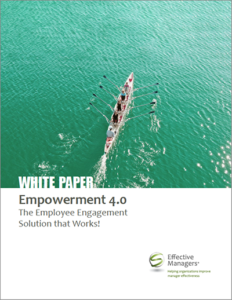Many studies have been done about the effectiveness of teams and how to heighten it. Even big companies like Google make a lot of effort to continuously analyze and improve their internal processes. One of their research activities – identified and highlighted – the five traits that are important to team effectiveness. Let’s discuss these traits in more detail and have a closer look at how managers can affect and nurture them:
It’s All About How the Team Works Together
The researchers at Google had some interesting insights regarding team effectiveness. As it turned out, the crucial factor was how the team worked together, regardless of the individual personalities of the people who make up the team. Five major traits were affecting the performance of the group:
- Psychological safety — the willingness to take a risk because the environment in the team feels safe enough for it;
- Dependability — the ability to reliably complete work on time;
- Structure and clarity — every team member’s understanding of both job expectations as well as the process of fulfilling them;
- Meaning — the sense of purpose of the work itself and the importance of output accomplished by each member of the team;
- Impact — the subjective feeling that the work each member of the team does is making a difference.
Google’s main aim was to help teams learn how to support themselves and to assist each team member in determining how to contribute better to the team. However, groups that are self-managed like this might not always be useful.
An Effective Manager Can Help
Even though self-managed teams can generally improve their performance by being aware of the importance of these five traits, sometimes team members will not be able to facilitate them on their own. That’s where the manager’s role is critical, as their job is to ensure the team works effectively by providing them with the right environment and tools to do their work.
If we take a closer look at the Effective Point of Accountability methodology, we can conclude that it is suited for providing the five crucial team effectiveness traits. A good manager knows how to establish clarity and structure within a team by delegating work effectively. What’s more, when team members are aware of what they should be doing and how their tasks feel more meaningful and impactful for the proper functioning of the organization.
All of these factors contribute to creating a safe environment for the team members to take risks, as they are well aware of their accountability and they know the kind of decisions they are authorized to make on their own.
Key Takeaways
If a team member doesn’t feel like their needs are being met, that can lead to the sub-optimal performance of the entire team. The five requirements of effective managers in the Effective Point of Accountability methodology cover the facilitation of the five most essential conditions of team effectiveness.
By planning, doing, setting context and boundaries, delegating work, and establishing feedback loops, a good manager does wonders for the effectiveness of the entire team.

Download a complimentary copy here: Empowerment 4.0 Whitepaper
Dwight is leading a 7-week Flevy Executive Learning (FEL) program on effective management called Empowerment 4.0. Learn more about this course here. For the month of October you can save 75% on enrollment.
Learn More
Or check out this free webinar for the high level overview. Sign up for the free webinar here.
We can help you create and sustain a high performance organization.
You can also check out our Engagement Infographic here. Or email me to set up a call.






